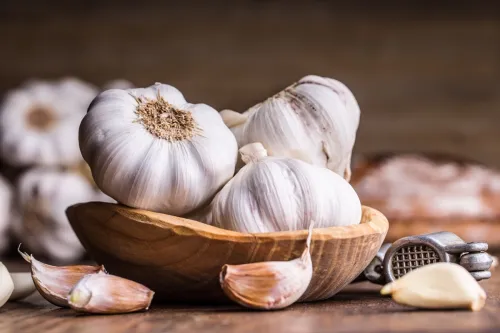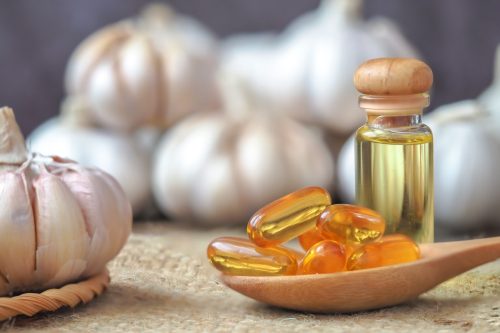This Supplement May Raise Your Cholesterol
Many of us start our day by drinking a glass of water to wash down a handful of dietary supplements. Whether it’s vitamin C to help stave off colds, vitamin D in the winter to make up for lost sunlight, or fiber to keep your digestive system running smoothly, it seems like there’s a pill or packet for every ailment under the sun.
But if you’re taking supplements to lower your cholesterol, a recently published study may prompt you to rethink your routine. Read on to see which popular supplement might actually increase your cholesterol—and what you can do instead.
READ THIS NEXT: Drinking This Popular Beverage Can Slash Your Bad Cholesterol, Experts Say.

Just because a supplement is marketed a certain way, that doesn’t necessarily mean that there’s evidence to back up the company’s claims.
According to the U.S. Food & Drug Administration (FDA), the agency regulates supplements “under a different set of regulations than those covering ‘conventional foods and drug products'” and “does not have the authority to approve dietary supplements for safety and effectiveness, or to approve their labeling, before the supplements are sold to the public.”
That means that while the FDA is able to take action against mislabeled or diluted supplements, not everything on the supplement shelves at your pharmacy has actually been vetted for effectiveness.
READ THIS NEXT: This Is the One Vitamin You Should Never Take, Doctors Say.

Cholesterol is a wax-like substance in the blood that our bodies need in order to build healthy cells, the Mayo Clinic explains. If our cholesterol levels get too high, fatty deposits can clog blood vessels and lead to heart attack or stroke. High-density lipoprotein (HDL) is known as the “good” cholesterol, they say, because it moves through your body to collect excess cholesterol and takes it back to your liver, so it doesn’t clog your arteries. Conversely, low-density lipoprotein (LDL) is known as the “bad” cholesterol, because it builds up your artery walls and transports cholesterol particles throughout your body.
When it comes to HDLs, Healthline says “[the] higher this number, the better,” noting that this metric should be at least 55 mg/dL for women and 45 mg/dL for men. Whereas when it comes to LDLs (yep, you guessed it) “[the] lower this number, the better” (ideally no more than 130 mg/dL for folks who don’t have heart disease or diabetes).

According to a study published in the Nov. 2022 edition of the Journal of the American College of Cardiology, don’t reach for a bottle of garlic supplements if you’re looking to lower your LDLs.
In the study, researchers looked at 190 patients across 28 days and compared cholesterol outcomes from those taking a placebo, those taking statins (a class of cholesterol-lowering drugs), and those taking one of the following six “heart-healthy” dietary supplements: garlic, red yeast rice, fish oil, cinnamon, turmeric, and plant sterols.
Patients who were assigned garlic supplements saw an increase in LDLs (the “bad” cholesterol) by nearly eight percent.
For more health news sent directly to your inbox, sign up for our daily newsletter.

Even if they’re not a magic ticket to lower LDLs, garlic supplements may still provide benefits to lots of people. Jessica DeGore, a registered dietician and nutritionist, told Best Life that garlic supplements “[have] shown excellent health-promoting and disease-preventing effects on many common diseases, such as cancer, cardiovascular and metabolic disorders, blood pressure, and diabetes,” noting that studies say it has “antioxidant, anti-inflammatory, and lipid-lowering properties.”
Dietician Amber Dixon, CEO at Elderly Assist Inc., further explains that “Garlic is known for its anti-inflammatory properties, which can help with blood pressure and heart disease risk. It also has antiviral and antibacterial properties, which can help fight off infections like colds and the flu.”
If you have high cholesterol and you take a garlic supplement, “You don’t need to stop immediately,” says DeGore, “but I would recommend discussing [it] with your provider.”
" Conservative News Daily does not always share or support the views and opinions expressed here; they are just those of the writer."
